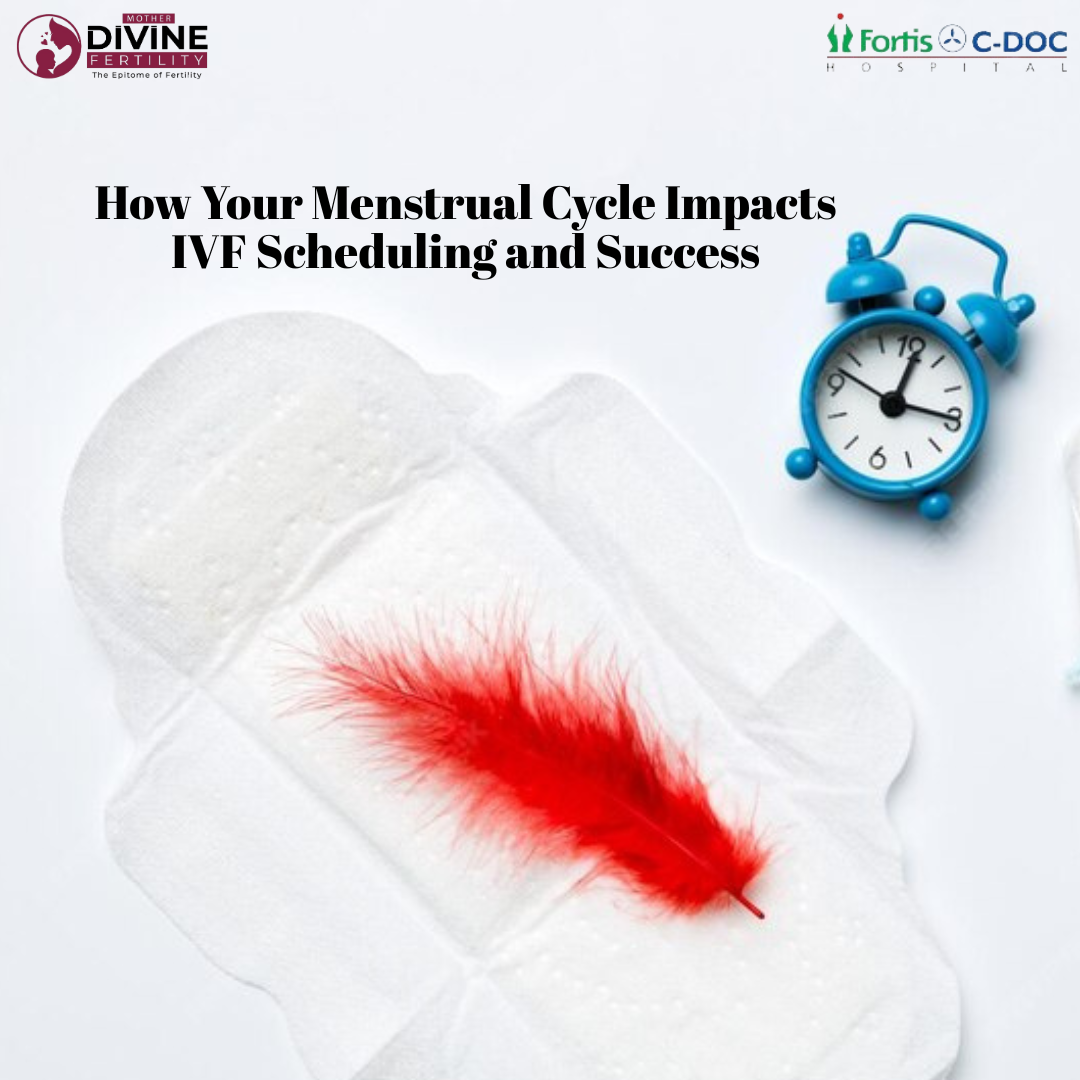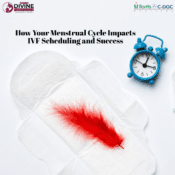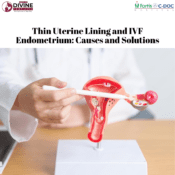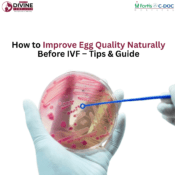

How Your Menstrual Cycle Impacts IVF Scheduling and Success
1. Introduction
Embarking on the journey of IVF (In Vitro Fertilization) is both hopeful and overwhelming for many couples. If you are preparing for IVF, you’ve probably realized how much timing matters. One of the most important yet often overlooked factors in IVF treatment is your menstrual cycle.
Your menstrual cycle isn’t just about periods—it’s a rhythm that dictates fertility, ovulation, and the body’s readiness for pregnancy. In IVF, this rhythm plays an even greater role. Doctors closely monitor cycle phases to ensure the right timing for ovarian stimulation, egg retrieval, and embryo transfer.
This blog will walk you through how your menstrual cycle influences IVF scheduling and success rates, especially if you’re facing challenges like irregular periods, short or long cycles, or even starting IVF without having a period. By the end, you’ll understand why cycle awareness is essential, how doctors adjust treatment based on it, and what you can do to maximize your chances of success.
2. The Menstrual Cycle and Its Phases
To understand how IVF is scheduled, you first need to know the basics of the menstrual cycle. A “normal” cycle usually ranges between 24 to 34 days, but variations like a short menstrual cycle (24 days) or a 34-day cycle with late ovulation are common.
Key Phases of the Menstrual Cycle
- Follicular Phase (Day 1–14 on average)
- Begins on the first day of menstruation.
- Follicle-stimulating hormone (FSH) helps follicles in the ovaries mature.
- Estrogen levels rise, preparing the uterine lining for possible implantation.
- Ovulation (Mid-cycle)
- Triggered by a surge in luteinizing hormone (LH).
- A mature egg is released, usually around Day 14 in a 28-day cycle.
- This is the fertile window when natural conception is most likely.
- Luteal Phase (Post-ovulation until next period)
- Progesterone levels rise, stabilizing the endometrium (uterine lining).
- If no pregnancy occurs, hormone levels drop and menstruation begins again.
The Role of Hormones in Fertility
- Estrogen: Thickens uterine lining.
- Progesterone: Maintains a receptive endometrium.
- FSH: Stimulates follicle growth.
- LH: Triggers ovulation.
In IVF, doctors often manipulate these hormones using medications to optimize egg quality and ensure the uterine lining is ready for implantation.
3. Why the Menstrual Cycle Matters in IVF
Your natural cycle is like a map for fertility specialists. IVF requires precise timing for every step: ovarian stimulation, egg retrieval, fertilization, and embryo transfer.
- Ovarian Stimulation: Often begins around Day 2 or Day 3 of the cycle. This is why doctors ask patients to call on the first day of their period.
- Egg Retrieval: Scheduled when follicles reach the right size (usually around Day 10–14).
- Embryo Transfer: Planned to match the luteal phase when the endometrium is most receptive.
If your cycle is irregular or unpredictable, doctors may use medications like birth control pills or hormone injections to regulate and synchronize your cycle with the IVF process.
4. IVF Scheduling Based on Cycle Days
Here’s a simplified breakdown of how IVF is aligned with your menstrual cycle:
- Day 1 (Period starts): The IVF cycle begins.
- Day 2–3: Ovarian stimulation medications start. This is crucial for egg growth.
- Day 10–14: Ultrasounds and blood tests track follicle growth. A “trigger shot” is given to release mature eggs.
- Egg Retrieval: Done 34–36 hours after the trigger shot.
- Embryo Transfer: Usually scheduled a few days after retrieval, during the luteal phase when the uterus is most receptive.
If you’re wondering “How quickly can you start IVF?”—it often depends on your menstrual cycle. Some women begin as soon as their next period starts, while others may need cycle regulation first.
5. Impact of Irregular Cycles on IVF
Not everyone has a textbook 28-day cycle. Some women face irregular periods due to conditions like PCOS, thyroid disorders, or hormonal imbalances.
Common Challenges
- Starting IVF but no period: This can happen after stopping birth control, during perimenopause, or due to stress. Doctors may prescribe medications to induce a period before starting.
- Short cycles (24–25 days): Can limit follicle growth time.
- Long cycles (34+ days): May indicate late ovulation or poor ovarian reserve.
- No period after IVF but not pregnant: Sometimes a result of hormonal medications delaying menstruation.
Solutions
- Hormonal therapy to regulate cycles.
- Use of natural cycle IVF (which doesn’t rely on heavy stimulation).
- Opting for frozen embryo transfer (FET), which allows more flexibility in timing.
6. Advanced IVF Techniques and Menstrual Cycle Control
Modern IVF has advanced techniques to overcome irregular cycles:
- Birth Control Pills: Used before IVF to regulate the cycle.
- Hormonal Injections: Control ovulation timing and prevent premature release of eggs.
- Natural Cycle IVF: Involves minimal or no stimulation drugs, relying on the woman’s natural ovulation. This can lower costs (Natural IVF cycle cost) and is sometimes recommended for women over 40.
- Frozen Embryo Transfer (FET): Allows doctors to transfer embryos in a carefully prepared cycle, improving success rates.
Studies show that IVF natural cycle frozen embryo transfer success rate can be quite promising, especially for women with irregular cycles.
7. How Cycle Timing Affects IVF Success
For IVF to succeed, synchronization between the embryo and the uterine lining is crucial.
- If the transfer is too early or too late, implantation chances drop.
- A well-prepared endometrium increases success rates.
- Research highlights that women with regular cycles often have higher implantation success.
For women in their late 30s and 40s, Natural cycle IVF success rates over 40 may be lower, but proper cycle tracking and personalized treatment still provide hope.
8. Tips for Women Preparing for IVF
Here are some practical steps to make your cycle IVF-friendly:
- Track Your Cycle: Use apps, ovulation kits, or basal body temperature charts.
- Maintain a Healthy Lifestyle: Balanced diet, good sleep, exercise, and stress reduction support hormonal balance.
- Communicate with Your Doctor: Report any changes like “Why is my menstrual cycle getting longer?” so adjustments can be made.
- Stay Flexible: Sometimes doctors may delay transfer to the next cycle for better outcomes.
9. When to Seek Medical Guidance
You should consult your doctor if you experience:
- Irregular cycles or skipped periods.
- Difficulty identifying ovulation.
- Repeated IVF failures linked to timing or lining issues.
The best approach is personalized care. Consulting the best IVF centre in Delhi, or top fertility clinics across India, ensures access to advanced cycle-monitoring technology and tailored protocols. Many centers also provide transparent information on IVF cost in Delhi, IVF price in Delhi, and support packages for patients.
If you’re searching, look for trusted names like the best IVF clinic in Delhi NCR, best fertility hospital in Delhi, or top IVF center in Delhi—clinics that combine experience with compassion.
10. Conclusion
Every woman’s cycle is unique, and so is her IVF journey. While cycle length, irregularities, or age may impact IVF planning, modern fertility treatments adapt to your body’s rhythm.
Doctors at the best IVF centre in Delhi work closely with patients to track cycles, optimize timing, and increase the likelihood of success. Whether you’re dealing with a 24-day menstrual cycle, a 34-day cycle, or even starting IVF without a period, there are solutions tailored for you.
Remember: IVF is not just about science—it’s also about patience, timing, and personalized care. By understanding your cycle and working with an experienced fertility team, you can take confident steps toward achieving parenthood.





